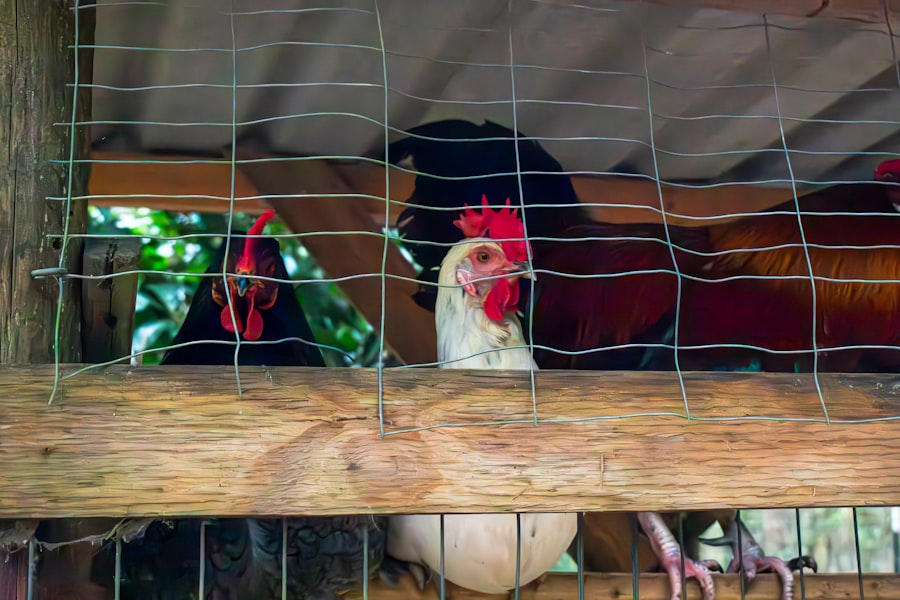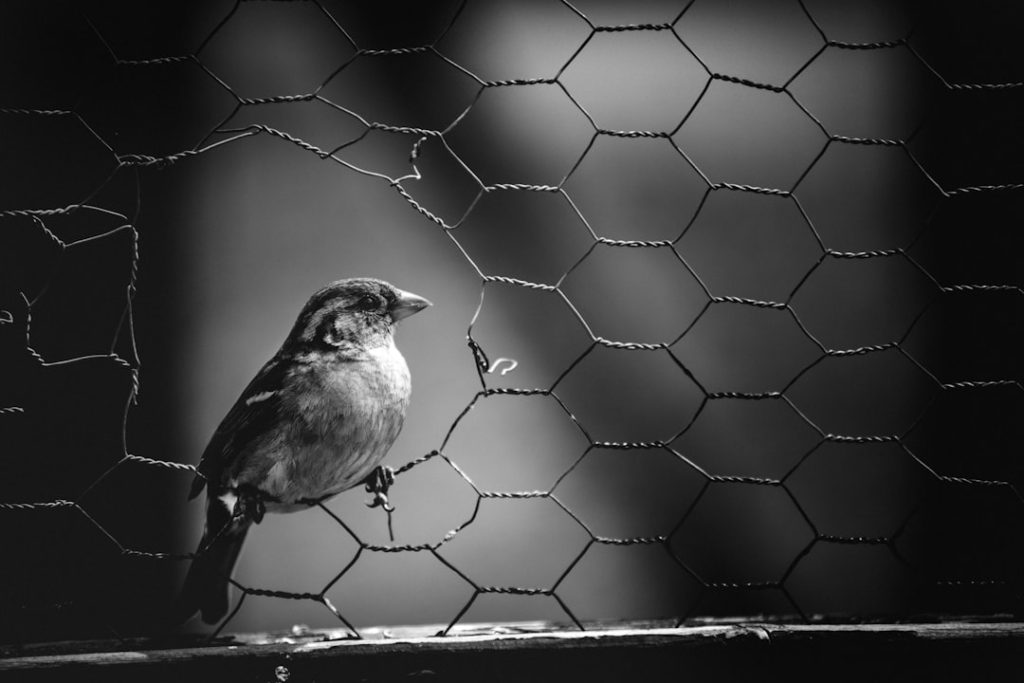Chickens are naturally inquisitive and opportunistic birds that may venture into unintended areas, including vegetable gardens. This behavior can become problematic when chickens begin consuming tomatoes, a valuable crop for many gardeners. The bright red color of ripe tomatoes attracts chickens, and once they discover this food source, they may repeatedly return to the garden.
This can result in significant crop loss and damage to the overall health and growth of tomato plants. Additionally, chickens may scratch and dig around the plants, causing further harm to the garden bed. Conversely, tomatoes can pose health risks to chickens, particularly if they consume large quantities of green tomatoes or tomato plant leaves.
These parts of the tomato plant contain toxic compounds such as solanine and tomatine, which can be harmful to chickens if ingested in substantial amounts. Therefore, addressing the issue of chickens eating tomatoes requires a dual approach: protecting the tomato plants from chicken damage and ensuring that chickens are not exposed to potentially harmful parts of the plant.
Table of Contents
- 1 Creating Physical Barriers
- 2 Using Natural Deterrents
- 3 Implementing Scare Tactics
- 4 Providing Alternative Spaces for Chickens
- 5 Regular Monitoring and Maintenance
- 6 Seeking Professional Advice
- 7 FAQs
- 7.1 What are some effective methods for keeping chickens out of tomatoes?
- 7.2 How can I use fences or netting to keep chickens out of my tomato plants?
- 7.3 What are some natural deterrents that can help keep chickens away from tomatoes?
- 7.4 How can I provide alternative foraging areas for my chickens to keep them away from my tomato plants?
Key Takeaways
- Chickens and tomatoes can be a problematic combination due to chickens’ tendency to peck at and damage the fruit.
- Physical barriers such as fences and netting can effectively keep chickens away from tomato plants.
- Natural deterrents like strong-smelling herbs and plants can help repel chickens from the garden.
- Scare tactics such as motion-activated devices or reflective materials can startle chickens and discourage them from entering the garden.
- Providing alternative spaces for chickens to roam and forage can divert their attention away from the garden.
- Regular monitoring and maintenance of barriers and deterrents is essential to ensure their effectiveness.
- Seeking professional advice from a veterinarian or agricultural expert can provide tailored solutions for specific chicken and tomato garden issues.
Creating Physical Barriers
Creating Physical Barriers
One effective way to prevent chickens from accessing tomato plants is to create physical barriers around the garden or individual plants. This can be achieved by using fencing, netting, or cloches to enclose the tomato plants and keep the chickens out. Chicken wire or hardware cloth can be used to create a simple fence around the perimeter of the garden, or individual tomato plants can be protected with wire cages or netting.
Securing the Barriers
It is important to ensure that the barriers are secure and tall enough to prevent the chickens from flying or jumping over them. Additionally, burying the bottom of the fence or netting underground can help prevent chickens from digging underneath and gaining access to the garden.
Alternative Options
Another option for creating physical barriers is to use cloches or row covers specifically designed for protecting plants from pests. These can be placed directly over the tomato plants and provide a physical barrier that prevents chickens from reaching the fruit. Row covers are especially useful for protecting young tomato plants from chicken damage while still allowing sunlight, air, and water to reach the plants.
Maintenance and Inspection
When using physical barriers, it is important to regularly inspect and maintain them to ensure that they remain intact and effective in keeping chickens away from the tomatoes.
Using Natural Deterrents

In addition to physical barriers, natural deterrents can also be used to discourage chickens from eating tomatoes. One common natural deterrent is the use of strong-smelling or spicy substances that chickens find unappealing. For example, sprinkling crushed red pepper flakes or garlic powder around the base of tomato plants can help deter chickens from pecking at the fruit.
The strong scent and taste of these substances can act as a natural repellent and discourage chickens from approaching the tomatoes. Another natural deterrent that can be effective is the use of predator scent or urine around the garden. This can create a sense of danger for the chickens and make them less likely to venture near the tomato plants.
Predator scent can be purchased in liquid form and sprayed around the perimeter of the garden, while predator urine can be obtained from hunting supply stores and applied in a similar manner. It is important to reapply these natural deterrents regularly, especially after rain or watering, to maintain their effectiveness in keeping chickens away from the tomatoes.
Implementing Scare Tactics
Scare tactics can also be employed to deter chickens from eating tomatoes by creating an environment that is intimidating or uncomfortable for them. One common scare tactic is the use of visual deterrents such as shiny objects or reflective surfaces that can startle and deter chickens. For example, hanging aluminum foil strips or old CDs near tomato plants can create flashes of light and movement that may scare off chickens.
Additionally, scarecrows or other life-sized decoys can be placed in the garden to create the illusion of a predator presence and discourage chickens from approaching. Another effective scare tactic is the use of noise or motion-activated devices that startle chickens when they come near the tomato plants. These devices can emit loud noises, flashing lights, or sudden movements that deter chickens without causing them harm.
Motion-activated sprinklers, for example, can be set up around the garden and will spray water at any approaching chickens, creating a negative association with the area and deterring them from returning. It is important to regularly change the location or pattern of these scare tactics to prevent chickens from becoming accustomed to them.
Providing Alternative Spaces for Chickens
One way to reduce the likelihood of chickens eating tomatoes is to provide them with alternative spaces for foraging and exploring. By creating designated areas for chickens to roam and peck, they are less likely to seek out tomatoes in the garden. This can be achieved by setting up a separate chicken run or enclosure with access to grass, insects, and other natural sources of food.
By providing a stimulating environment with plenty of space and enrichment, chickens are less likely to become bored and turn to destructive behaviors such as pecking at tomatoes. Another option is to offer supplemental feed or treats for the chickens that will satisfy their natural foraging instincts and reduce their interest in tomatoes. Scatter feeding or using treat balls can encourage chickens to spend time searching for food in designated areas rather than seeking out tomatoes in the garden.
Additionally, providing fresh fruits and vegetables as part of their diet can help satisfy their natural curiosity for different foods and reduce their inclination to eat tomatoes.
Regular Monitoring and Maintenance

Inspecting Barriers and Deterrents
This includes regularly inspecting physical barriers, natural deterrents, and scare tactics to ensure that they remain effective in keeping chickens away from the tomato plants. Any damage or wear to fencing, netting, or other barriers should be promptly repaired or replaced to maintain their integrity.
Monitoring Chicken Activity
In addition, it is important to regularly check for signs of chicken activity in the garden, such as droppings or feathers near tomato plants. This can indicate that chickens are still finding a way into the garden despite preventative measures and may require adjustments or additional deterrents.
Inspecting Tomato Plants
Regularly inspecting tomato plants for signs of damage or pecking can also help identify any areas that may need extra protection.
Seeking Professional Advice
If despite your best efforts, you are still struggling with chickens eating tomatoes in your garden, it may be beneficial to seek professional advice from a veterinarian, agricultural extension office, or experienced poultry keeper. These professionals can provide valuable insights and recommendations for addressing the issue based on their expertise and experience with chickens and gardening. A veterinarian can offer guidance on safe and effective natural deterrents for keeping chickens away from tomatoes while ensuring their health and well-being.
They can also provide information on potential risks associated with chickens consuming tomatoes or parts of the plant and offer advice on managing these concerns. An agricultural extension office can provide specific recommendations for protecting tomato plants from chickens based on local conditions and resources. They may also offer workshops or resources on poultry management and gardening practices that can help address the issue.
Experienced poultry keepers or farmers may have valuable insights into effective strategies for deterring chickens from eating tomatoes based on their own experiences and successes. They may be able to offer practical advice on managing chicken behavior and creating a harmonious coexistence between chickens and tomato plants. In conclusion, preventing chickens from eating tomatoes in a garden requires a multi-faceted approach that addresses both the needs of the chickens and the protection of tomato plants.
By understanding the motivations behind chicken behavior, implementing physical barriers, natural deterrents, scare tactics, providing alternative spaces for chickens, regular monitoring, and seeking professional advice when needed, it is possible to create a harmonious environment where both chickens and tomatoes can thrive without conflict.
If you’re looking for more information on keeping poultry and vegetables, you might be interested in learning about what vegetables quails eat. Check out this article to find out which vegetables are suitable for quails to consume.
FAQs
What are some effective methods for keeping chickens out of tomatoes?
Some effective methods for keeping chickens out of tomatoes include using physical barriers such as fences or netting, using natural deterrents like predator decoys or strong-smelling plants, and providing alternative areas for the chickens to forage.
How can I use fences or netting to keep chickens out of my tomato plants?
You can use chicken wire or hardware cloth to create a physical barrier around your tomato plants. Make sure the barrier is tall enough and securely anchored to the ground to prevent the chickens from getting through or under it.
What are some natural deterrents that can help keep chickens away from tomatoes?
Natural deterrents for keeping chickens out of tomatoes include placing predator decoys, such as fake owls or snakes, near the tomato plants. You can also plant strong-smelling herbs or flowers, like marigolds or lavender, around the perimeter of the garden to deter the chickens.
How can I provide alternative foraging areas for my chickens to keep them away from my tomato plants?
You can create designated foraging areas for your chickens by setting up a separate fenced-off section of your yard or garden where they can scratch and peck without accessing the tomato plants. Additionally, providing ample space, enrichment, and a balanced diet for your chickens can help reduce their interest in foraging in the tomato plants.
Meet Walter, the feathered-friend fanatic of Florida! Nestled in the sunshine state, Walter struts through life with his feathered companions, clucking his way to happiness. With a coop that’s fancier than a five-star hotel, he’s the Don Juan of the chicken world. When he’s not teaching his hens to do the cha-cha, you’ll find him in a heated debate with his prized rooster, Sir Clucks-a-Lot. Walter’s poultry passion is no yolk; he’s the sunny-side-up guy you never knew you needed in your flock of friends!







